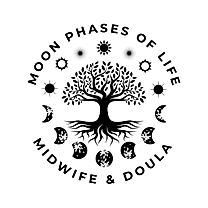What is Informed Consent?
Informed Consent.
Informed Refusal.
Respectful Care.
Buzz words to some, foundational to us.
A foundation upon which traditional midwifery care grows.
Your pregnancy and birth and postpartum experiences will be full of hundreds of decisions to make. You may not have realized some of these things were decisions at all, having had experiences in which you were made to feel as if you *had* to accept what was being presented.
That is what we like to call: being informed to consent.
That's not informed consent, friends.
So, what exactly is informed consent? I put it this way: “Information provided should be free from the personal bias of the practitioner and should be presented without coercion or intimidation. When all reasonable options have been discussed, and the client understands the possible outcomes of each option, it is the client’s right to choose her course of care.”
My job as your sacred wise woman/midwife is to stay up to date on the most current research and standards of care, provide the information about these options, and it’s your job to make the decision. I provide the scaffolding, but it is you doing the building.
In your pregnancy, you will be presented with options for ultrasounds, bloodwork, genetic screening, lab tests, fetal surveillance, vaginal exams, and everything in between. I have clients who tell me they want all the things, and some who want the absolute minimum, and I have many clients who are somewhere on the spectrum in between. Like we said, I provide the information, you provide the decision.
Part of this aspect of informed consent lays on me as the care provider: I have to stay up to date on the latest research, I need to be aware of the standards of care, and I need to give you all of the information in a way that accurately portrays the benefits, risks, and options you have at your disposal. Not what I think you should do (although if there is something clinically I deem to be necessary, I do bring that into the conversation), not what I did when I were pregnant, not what I would do...but in a way that empowers you to make that decision.
This can feel very...other...to some people. Oftentimes healthcare is a "let me go to the expert and they'll tell me what to do" experience. Yes, I am a trained care provider and I am an expert in low-risk pregnancies, but I use that information to empower you while I serve you.
In birth, it is quite the same. There are 1,000 different options that can be offered, but you are in the driver's seat. Want antibiotics in labor due to your positive GBS screen, then that is the right decision for you. Don't want it? Great, that is the right decision for you. When you have all of the information in front of you and available, you are placed in the driver's seat. Want a vaginal exam? Sure! Don't want one? Yeah! Two people can choose two completely different options and have them both be the most right, most positive thing for them.
And then you snuggle up with your baby and (gasp) more decisions! The bulk of these decisions have already been made prenatally, as we don't want to take you away from the birth high you are on and the sweet space of connection while your brain and heart and body are powered by oxytocin. There may be certain things that come up unexpectedly as well, and we are in communication over the information and what that entails in the moment as needed.
Gosh, wise woman care really does require a lot of responsibility on your part as a client, doesn't it?! Yeah, it does...but that's the beauty of this experience.
YOU own it, all of it.
So, let’s cheers to information, choices, and respect. Let’s celebrate women’s choices in pursuit of their own subjective “positive” experiences!
